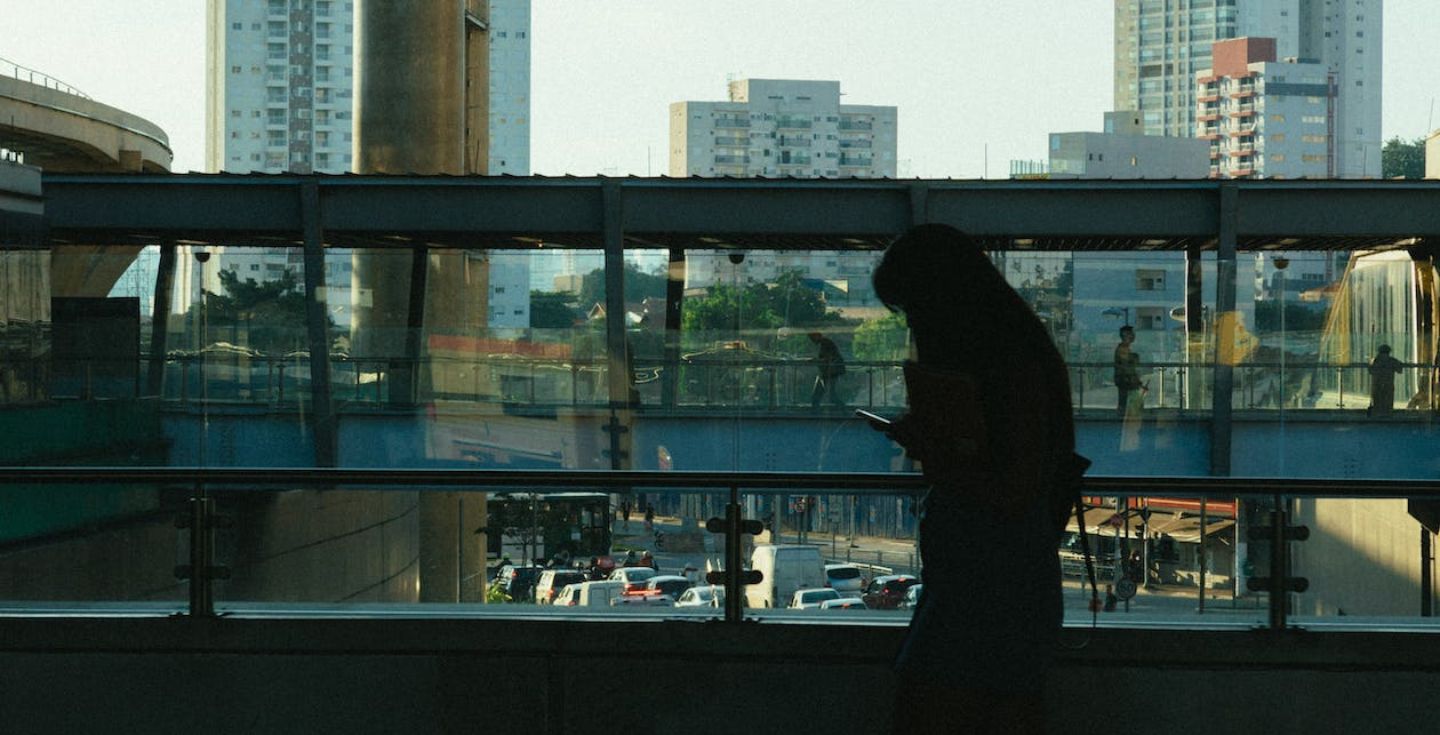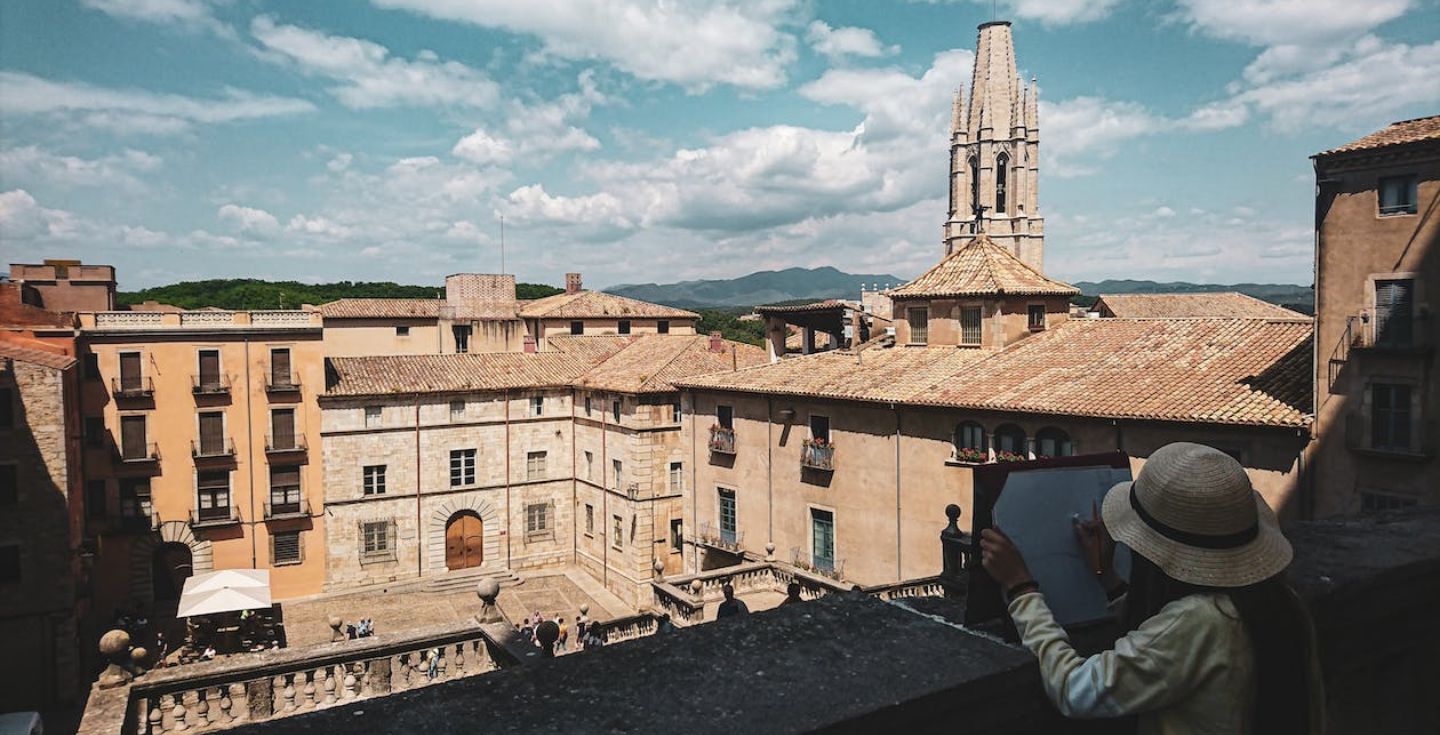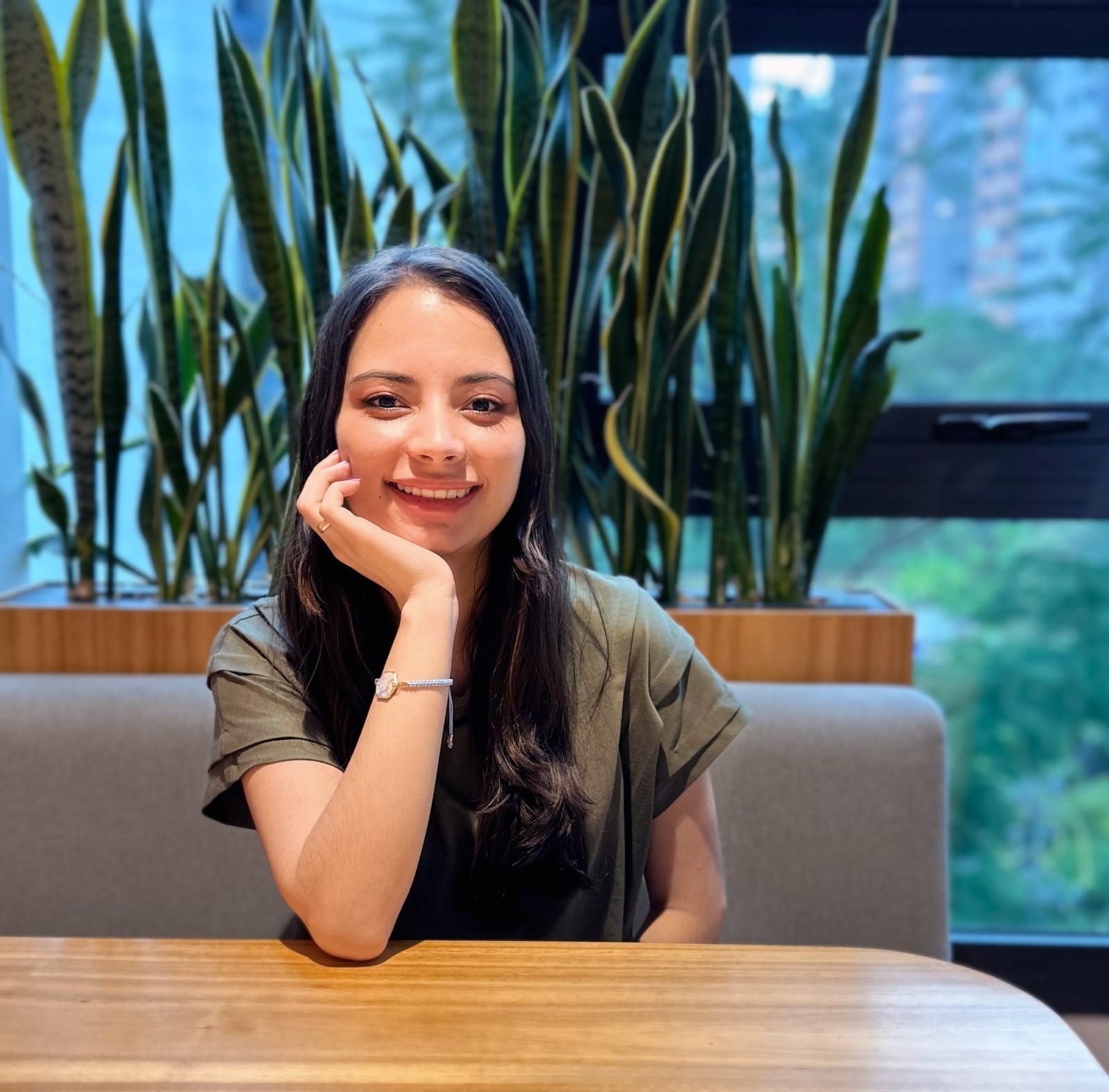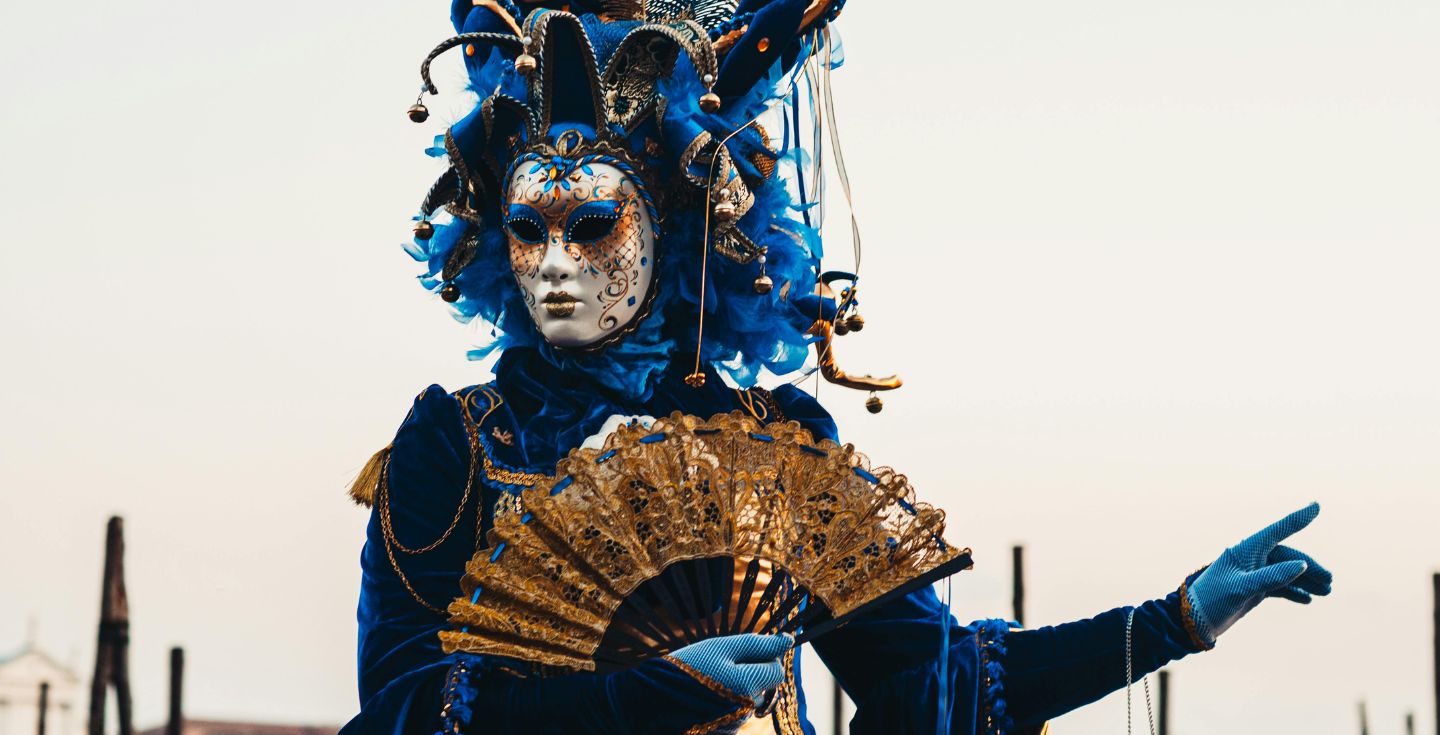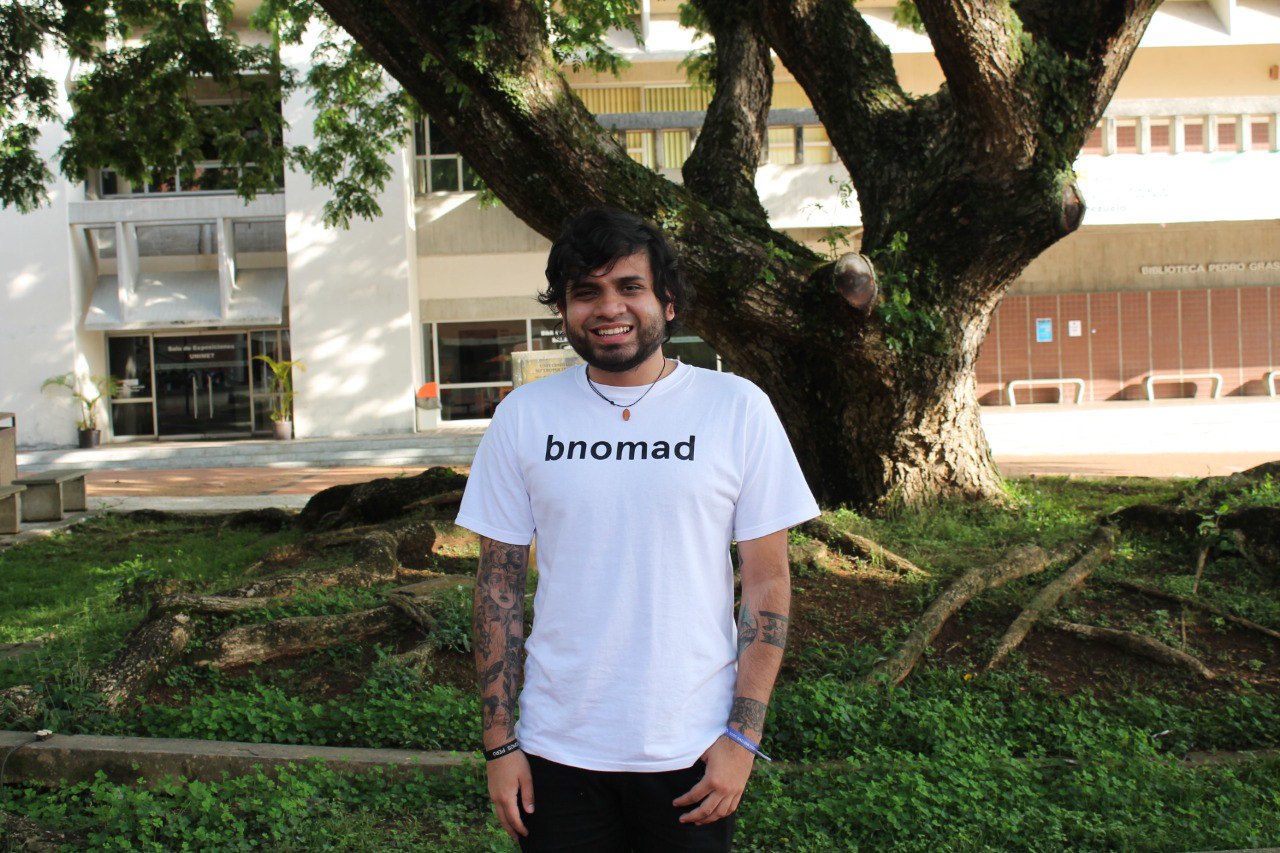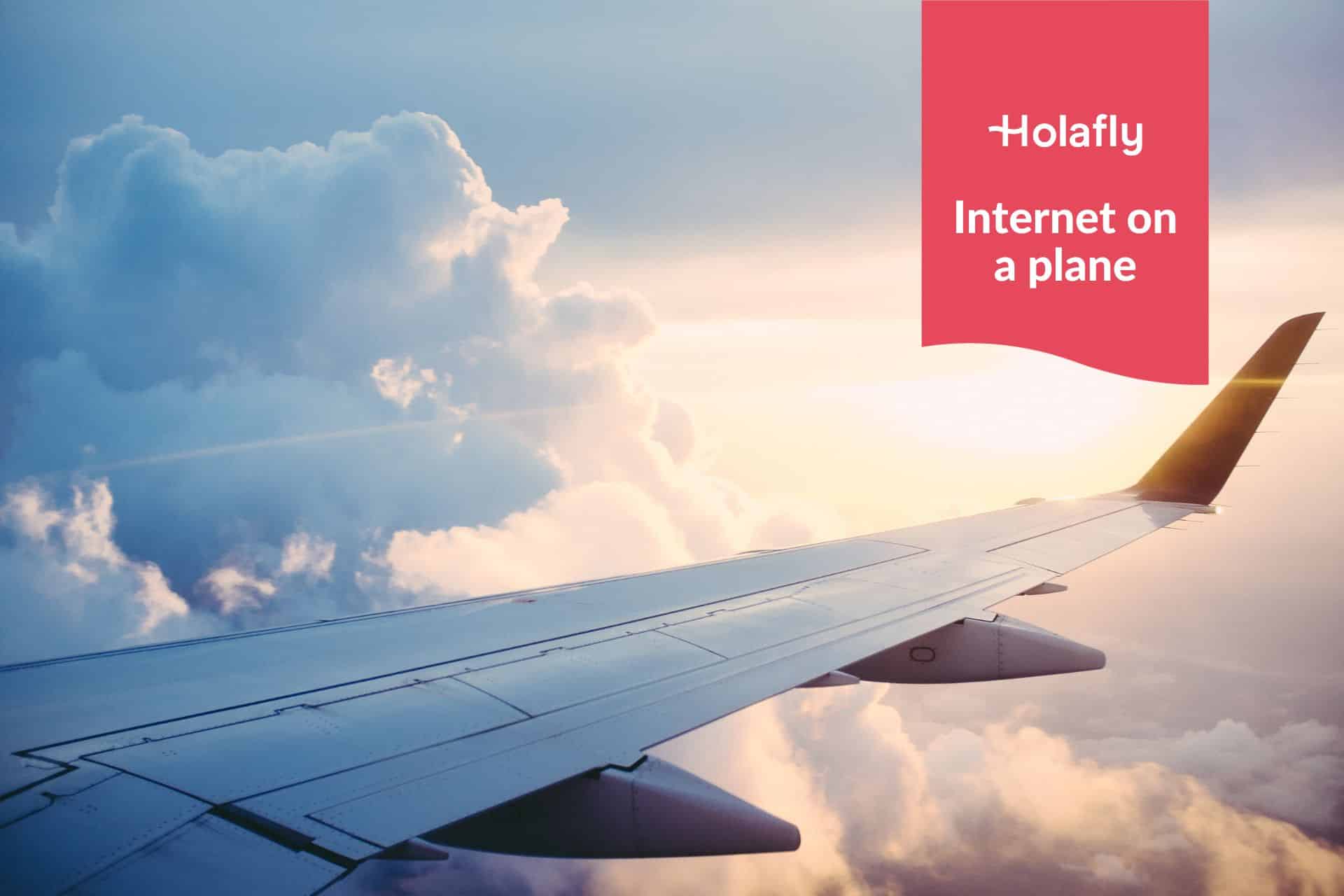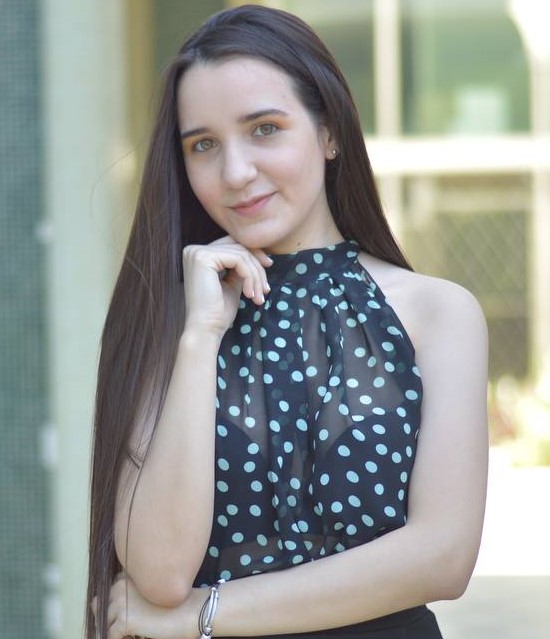How much does it cost to go to Australia? A full breakdown
The average cost to travel to Australia ranges from $1,300–$3,000 per person. This can vary based on your travel style, the duration of your stay, and the attractions you visit. Here, we break down expenses for every type of traveler.
Planning a trip to Australia? Whether you’re eyeing the iconic Sydney Opera House, snorkeling in the Great Barrier Reef, or just curious about the kangaroos (and tarantulas), one thing’s for sure — planning a trip to the Land Down Under comes with a price tag.
In this guide, we break down all the major costs — flights, accommodation, food, transport, activities, and even hidden extras — so you know exactly what to expect.
Let’s make your Australian adventure worth every buck!
What is the average cost of a trip to Australia?
On average, the cost of a trip to Australia is $1,300–$3,000 USD per person for a round trip.
Depending on how you vacation, you can expect to spend:
- Budget travel: $75/day for hostels, cheap eats, and public transport
- Mid-range travel: $184/day for mid-tier hotels, dining out, and tours
- Luxury travel: $517+/day for premium hotels, fine dining, and exclusive experiences
The cost of traveling to Australia depends on your personal vacation choices, where you’re staying, the attractions you visit, and, of course, everyone’s favorite: food.
How much does it cost to go to Australia for one, two, or three weeks?
When it comes to exploring Australia, you have two main options: plan your own adventure or go for a package holiday.
If you’re all about flexibility and picking your own stops, planning independently gives you more control — but it does take extra research and effort.
On the other hand, package holidays often bundle flights, accommodation, and activities, saving you the hassle but potentially costing a bit more.
To help you budget smarter, here’s a breakdown of what your trip might cost if you’re traveling from the US, based on Reddit threads and real traveler experiences.
1 Week in Australia
- Budget trip ($1,500–$2,500 per person):
Includes international flights (around $1,500), basic accommodations like hostels or shared Airbnbs ($50–$100 per night), public transport, and simple meals. Activities like free walking tours or one paid excursion ($100–$150) fit well within this range. - Luxury trip ($10,000–$20,000 per person):
Covers business-class flights, high-end hotels or resorts ($300–$500 per night), fine dining ($150+ per day), and premium activities like private tours or luxury transfers.
2 Weeks in Australia
- Budget trip ($3,000–$5,000 per person):
Flights remain the largest expense, with additional costs for extended stays at budget accommodations ($700–$1,400 total), meals at local eateries ($30–$70 daily), and affordable transport like buses or trains. Plan for a few paid activities ($300–$400 total). - Luxury trip ($10,000–$16,000 per person):
Extends your indulgence to premium experiences like exclusive guided tours. Luxury accommodations and dining for two weeks can add up to $5,000–$7,000 alone.
3 Weeks in Australia
- Budget trip ($4,500–$7,500 per person):
Perfect for slow travel. Budget accommodations ($1,000–$2,100 total), simple meals, and careful planning of activities and transport ($500–$1,000) can keep costs manageable. Domestic flights between cities might be necessary ($150–$300 per flight). - Luxury trip ($15,000–$24,000 per person):
Offers the ultimate indulgence. Stay in top-tier resorts, enjoy gourmet meals, and experience activities like private Great Barrier Reef charters or scenic flights. Expect to spend $5,000+ on luxury activities alone.
How much is a flight to Australia?
Flying to Australia can be a significant expense, with costs varying by region, class, and airline. On average:
- Economy flights range from $700 to $1,500 per person.
- Business or first-class flights can cost anywhere from $2,500 to $11,000, depending on the route and airline.
Here’s how much a flight to Australia costs:
| Departing from | Airlines | Economy | Business/First-Class |
|---|---|---|---|
| Asia | Singapore Airlines, Qantas, Cathay Pacific | $300–$8,000 | $1,200–$3,000 |
| UK | British Airways, Qantas, Emirates, Singapore Airlines | $1,100–$1,300 | $4,200–$8,400 |
| Europe | Turkish Airlines, Emirates, Lufthansa, Qatar Airways | $800–$1,000 | $4,000–$7,200 |
| North America | United Airlines, Delta, Qantas, American Airlines | $1,800–$2,500 | $5,000–$6,000 |
Note: The price estimation for these tour packages are based on round-trip flight charges.
How much does accommodation cost in Australia?
The average accommodation in Australia costs anywhere from $50 to $2000 a night based on your choice of accommodation. Keep in mind that accommodation costs in prime cities like Sydney and Melbourne will be higher than in smaller towns.
Hostels
Hostels are a popular choice for solo travelers visiting Australia, offering affordable options in major cities and tourist hubs. Here’s what you can expect to pay:
- Sydney and Melbourne: Dorm beds cost $50–$57 AUD ($32–$38 USD) per night, with private rooms reaching up to $200 AUD ($135 USD). These are the priciest cities for hostels.
- Brisbane: Dorm beds are listed from $26–$30 AUD ($17–$20 USD), but cheaper options book out fast, especially during busy periods.
- Cairns: Dorm beds range from $40–$50 AUD ($27–$34 USD) during peak seasons when demand is high.
Some hostels offer discounts for longer stays, starting at $100–$200 AUD ($68–$135 USD) per week.
Mid-range hotels
The average price for mid-range hotels is around $126 per night, with prices potentially rising to $234 during high season. Here’s a quick look at some popular mid-range hotel chains in Australia.
| Hotel | Location | Cost per night (USD) |
|---|---|---|
| Hotel George Williams | Brisbane | $79 |
| Miss Maud Swedish Hotel | Perth | $124 |
| By the Sea | Port Douglas | $169 |
| York Mansions | Launceston, Tasmania | $200 |
| The Reef Retreat | Palm Cove, Queensland | $227 |
| North Adelaide Heritage Group | North Adelaide | $275 |
Boutique hotels
Boutique hotel rates typically range from $200 to $900+ per night, depending on the city, seasonality, and specific amenities. Here’s a quick look:
| Hotel | Location | Price per night (USD) |
|---|---|---|
| Watson’s Bay Boutique Hotel | Watsons Bay, New South Wales | $150 |
| Sea Change Beachfront Apartments | Trinity Beach, Cairns Region, Queensland | $152 |
| Little National Hotel Sydney | Sydney, New South Wales | $152 |
| Treasury On Collins | Melbourne | $159 |
| MACq 01 Hotel | Hobart, Tasmania | $259 |
| Emporium Hotel South Bank | South Brisbane, Queensland | $299 |
| Halcyon House | Cabarita Beach, New South Wales | $358 |
| COMO The Treasury | Perth, Western Australia | $432 |
| Jamala Wildlife Lodge | Canberra, Australian Capital Territory | $649 |
Luxury hotels
Accommodation costs in high-end hotels and resorts can reach as high as $2000 per night. Here’s a quick look
| Hotel | Location | Cost per night (USD) |
|---|---|---|
| Qualia | Hamilton Island, Queensland | $1,000 |
| Capella Lodge | Lord Howe Island, Australia | $1,301 |
| Emirates One&Only Wolgan Valley | Wolgan Valley, New South Wales | $1,900 |
| Saffire Freycinet | Coles Bay, Tasmania | $2,300 |
| El Questro Homestead | East Kimberley, Western Australia | $2,700 |
How much does it cost to eat in Australia?
The average meal cost for one person in Australia can range from $2 for street food to as high as $130+ for a fancy meal.
Budget options
Australia’s street food scene offers tasty, affordable options perfect for budget travelers. You’ll find these options at food trucks, local markets, and takeaway shops in major cities and small towns alike.
Popular markets like Sydney’s Paddy’s Markets, Melbourne’s Queen Victoria Market, and Brisbane’s Eat Street are great places to explore for street food.
Here’s a list of popular street food items and their costs:
| Street food | Description | Price range (USD) |
|---|---|---|
| Meat Pies | A flaky pastry filled with savory meat | $2.50–$4 |
| Sausage Rolls | Pastry filled with seasoned sausage meat | $2–$3.50 |
| Barbecued Snags | Grilled sausages served with bread and sauces | $2–$3.50 |
| Fish and Chips | Fried fish with chips, a beachside favorite | $6.50–$10 |
| Chiko Roll | Aussie take on a spring roll with meat/veggies | $2–$2.50 |
| Halal Snack Pack | Kebab meat, fries, and sauces in one hearty box | $6.50–$10 |
| Bánh Mì | Vietnamese baguette sandwich with fillings | $4–$6.50 |
| Charcoal Chicken | Juicy roasted chicken, often served in portions | $10–$15 AUD / ~$6.50–$10 USD |
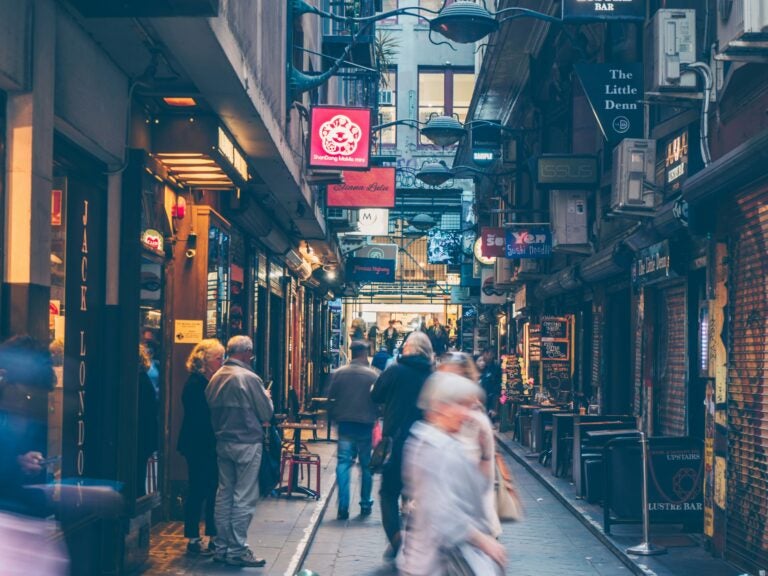
Mid-range options
A sit-down dinner at a mid-range restaurant typically costs $20–$40 AUD (~$13–$27) per main dish, with some higher-end options ranging up to $50 AUD (~$34). Overall, you can expect to pay anywhere from $12 to $40 per person.
From classic pub meals to fresh seafood and modern Australian cuisine, there’s a variety of options that deliver great food without breaking the bank.
| Did you know? Many pubs offer affordable “meal deals” on certain days, like steak nightsBakeries are a great option for hearty snacks or quick meals at lower pricesReservations are often recommended for popular spots, especially during weekends |
Here’s a breakdown of popular mid-range dining options:
| Category | Restaurant/spot | Price range (USD) | Highlights |
|---|---|---|---|
| Pub-Style Dining | The Unicorn Pub (Paddington) | $12–$20 | Chicken schnitzel, a true Aussie classic |
| Pub-Style Dining | Moore Park View Hotel | $12 (Wednesdays) | Affordable steak night |
| Modern Australian | Pony Dining (The Rocks) | $20–$34 | Contemporary Aussie dishes, including kangaroo |
| Modern Australian | Chiswick (Woollahra) | $20–$34 | Seasonal produce-focused meals |
| Seafood | Sydney Fish Markets | $13–$27 | Half kg of prawns with a beer |
| Seafood | Saint Peter (Paddington) | $27–$40 | Unique seafood preparations |
| Steakhouses | Bistecca (CBD) | $27–$40 | Renowned for top-quality Aussie beef |
| Steakhouses | The Gidley | $34+ | Premium steak dining |
| Casual Dining | Coogee Pavilion | $17–$27 | Laid-back dining with a beachside vibe |
| Casual Dining | The Glebe Hotel | $20–$27 | Classic Sunday roast tradition |
| Bakeries and Snacks | Bourke Street Bakery | $3–$10 | Famous pork and fennel sausage roll |
| Bakeries and Snacks | Lode Pies & Pastries | $7–$13 | Includes wagyu beef options |
| Desserts | Cow and Moon (Newtown) | $3–$7 | Award-winning ice cream |
| Desserts | Tokyo Lamingtons (Newtown) | $3–$10 | Creative takes on the Aussie lamington |
High-end options
Australia’s fine dining scene offers some of the best culinary experiences in the world, with prices reflecting the quality, creativity, and ambiance. Expect to pay:
- Tasting menus: ~$100–$225 USD per person
- À la carte mains: ~$27–$54 USD per person
- Wine pairings: Add ~$67–$135 USD per person
Quick tips:
- Many high-end restaurants offer cheaper lunch-time tasting menus
- Reservations are essential for most fine-dining spots, especially on weekends
- Ask about wine pairings. Adding this to your meal enhances the experience but significantly increases costs
Here’s a look at standout high-end options across major cities:
| City | Restaurant | Price range (USD) | Highlights |
|---|---|---|---|
| Sydney | Quay | $193–$226 | Stunning Sydney Harbour views, modern Australian cuisine |
| Sydney | Sixpenny | $123 | Intimate dining, seasonal local ingredients |
| Sydney | Tetsuya’s | $153 | Japanese-French fusion degustation menu |
| Melbourne | Attica | $206 | Innovative Australian dishes, ranked among the world’s best |
| Melbourne | Vue de Monde | $153–$183 | Panoramic city views, modern Australian menu |
| Melbourne | Gimlet at Cavendish House | $32–$45 | Upscale à la carte dining in a glamorous setting |
| Brisbane | Montrachet | $30–$43 | French fine dining with classic flair |
| Brisbane | Donna Chang | $59–$85 | Modern Chinese banquet menus in a heritage building |
| Perth | Wildflower | $116 | Indigenous ingredients with city views |
| Perth | Restaurant Amusé | $106 | Contemporary Australian degustation menu |
| Adelaide | Restaurant Orana | $196 | Award-winning native Australian cuisine |
| Adelaide | Magill Estate Restaurant | $123 | Fine dining at Penfolds winery with seasonal produce |
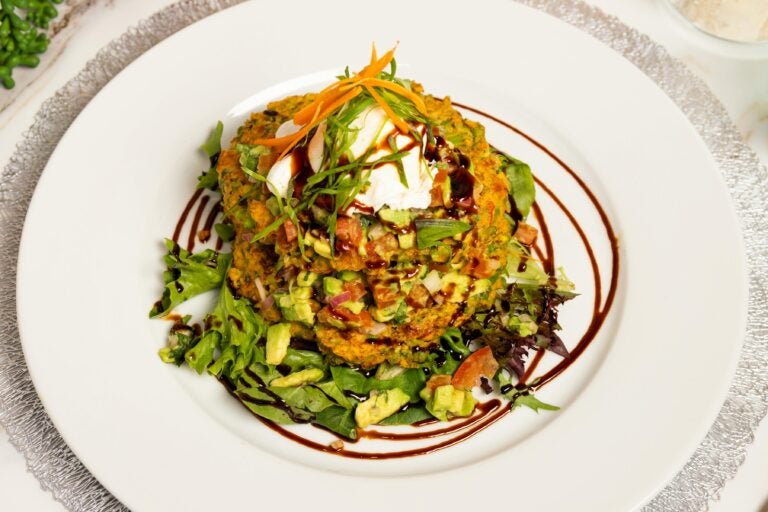
How much does the nightlife in Australia cost?
When the sun sets, Australia comes alive with its electrifying nightlife. From rooftop bars overlooking cityscapes to pulsating dance floors, Australia’s nightlife is as diverse as its landscapes.
Whether you’re sipping cocktails by the beach on the Gold Coast or grooving to live music in Melbourne’s hidden alley bars, the options are endless—but how much will it cost to party Down Under?
- Drinks: A pint of beer costs around $11–$14 AUD (~$7–$9 USD), while cocktails range from $18–$35 AUD (~$12–$23 USD). Prefer wine? Expect to pay $10 AUD (~$7 USD) per glass.
- Club entry: Getting into most clubs will set you back $20–$30 AUD (~$13–$20 USD), but it might climb higher for special events.
- Transportation: Late-night Uber rides average $55 AUD (~$35 USD) for a 25-minute trip, depending on demand.
- Snacks: A kebab or slice of pizza will cost $10–$20 AUD (~$7–$13 USD) — a lifesaver after hours on the dance floor!
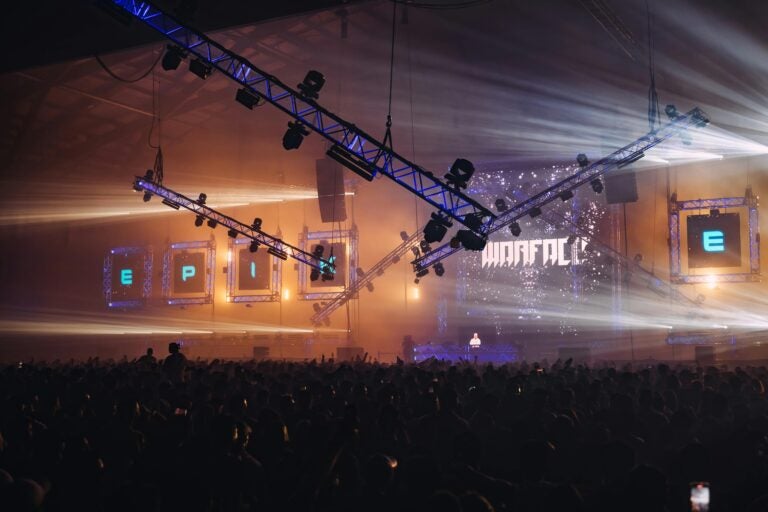
| 🍻Hit happy hour for discounted drinks, split transport with friends, and explore free live music spots to enjoy a great night without overspending. |
How much does it cost to move around in Australia?
Getting around Australia involves a mix of taxis, trains, and kangaroos (only joking!).
Whether you’re catching a bus across Melbourne or eyeing a car rental because your “neighboring” city is a 4-hour flight away, here’s what it’ll cost to keep you moving in the Land Down Under.
Public transport
Public transport in Australia’s main cities is reliable, but costs can vary depending on the city and type of travel.
You should take advantage of concessions for students, seniors, and pensioners or plan your travel during off-peak hours for reduced fares. Local travel cards, such as Opal in Sydney or Myki in Melbourne, often cost less than single tickets.
Here’s a breakdown of what you’ll spend getting around:
| City/region | Cost (AUD/USD) |
|---|---|
| Melbourne | $10.30 AUD / ~$7.10 USD daily cap |
| Sydney | $18.70 AUD / ~$12.90 USD daily cap |
| Sydney | $50 AUD / ~$34.50 USD weekly cap |
| Brisbane | $0.50 AUD / ~$0.35 USD (flat fare) |
| Northern Territory | Free buses until mid-2025 |
| Victoria (Regional) | $10.60 AUD / ~$7.27 USD |
Car rental
Renting a car in Australia gives you the freedom to explore everything from city streets to the vast Outback, but how much does it cost to hit the road? On average, expect daily rental rates between $20 and $120 AUD (~$13–$80 USD).
Here’s what you’ll typically pay, depending on your ride of choice:
- Small cars: Perfect for city cruising, costing $33–$52 AUD (~$22–$35 USD) per day.
- Medium cars: A bit more room for road trips, priced at $36–$48 AUD (~$24–$32 USD) daily.
- SUVs: Ideal for exploring rugged terrains, starting at $48–$58 AUD (~$32–$39 USD) per day.
- Vans: Great for group adventures, at $76–$90 AUD (~$51–$61 USD) daily.
- Luxury cars: If you’re splurging, these start from $100 AUD (~$68 USD) and up.
Planning a longer trip? The costs can drop for extended rentals:
- A 5-day rental for a small car will cost around $100–$200 AUD ($68–$135 USD).
- For two weeks, expect $250–$350 AUD (~$170–$240 USD) for an economy car, or $800–$1,200 AUD (~$540–$810 USD) for a premium SUV or luxury ride.
Prices can spike during peak holiday seasons (December to February) or if you’re picking up a car from the airport, where surcharges sneak in.
For the best deals, book early, choose off-airport locations, and keep an eye out for those budget-friendly rental companies.
Taxis
Taking a taxi in Australia is convenient but can get pricey. From Sydney Airport, a typical ride to the city costs $40–$55 AUD (~$27–$37 USD), while trips to North Sydney range from $60–$70 AUD (~$40–$47 USD).
Even shorter rides, like a 7 km trip to Surry Hills, can hit $70 AUD (~$47 USD), especially with late-night surcharges.
Brisbane fares are similar, with a 20-minute ride from the airport often costing around $80 AUD (~$54 USD). Extra fees like flagfall charges ($3.60 AUD (~$2.40 USD) by day, $6.10 AUD (~$4.10 USD) at night), and tolls ($5.45 AUD (~$3.70 USD) can quickly stack up.
Always ask for a fare estimate upfront, especially for longer trips. Plus, use apps like GoCatch or 13cabs to book rides and compare prices.
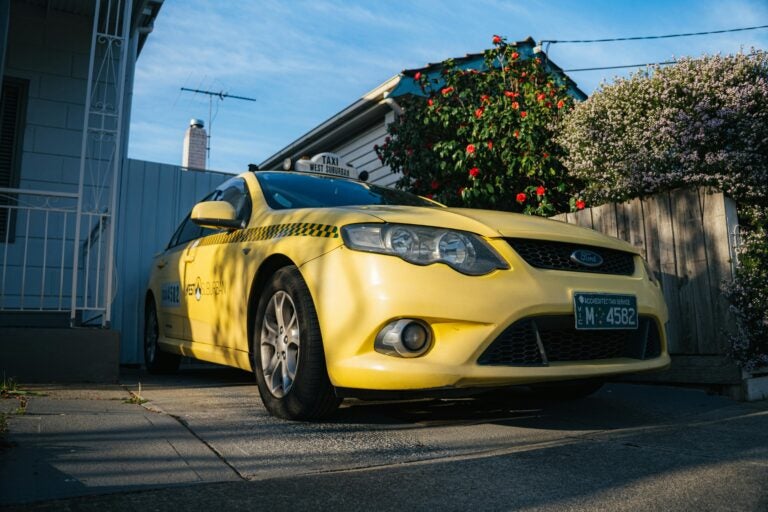
How much do activities and attractions in Australia cost?
On average, guided tours can cost $247 per day. The pricing will differ depending on the location, type of attractions, activities, and tour length.
Sydney Opera House
If there’s one place that deserves a spot on your Sydney itinerary, it’s the Sydney Opera House. Thinking of catching a show?
Event tickets vary depending on what’s on. For example, tickets for Cinderella start at $79 AUD (~$52 USD), with a $9.80 AUD (~$6.50 USD) booking fee.
Want to take a closer look?
Join a guided Sydney Opera House Tour to uncover its history, stories, and jaw-dropping interiors:
- Until 31 March: Adults pay $45 AUD (~$30 USD), kids $25 AUD (~$17 USD), and families can snag a pass for $115 AUD (~$75 USD).
- From 1 April: Expect a slight bump — adult tickets will be $48 AUD (~$32 USD) and family passes $124 AUD (~$81 USD).
Oh, and kids under 5? They get in for free. Tours are small (35 people max), so book early on the official website to lock in your spot.
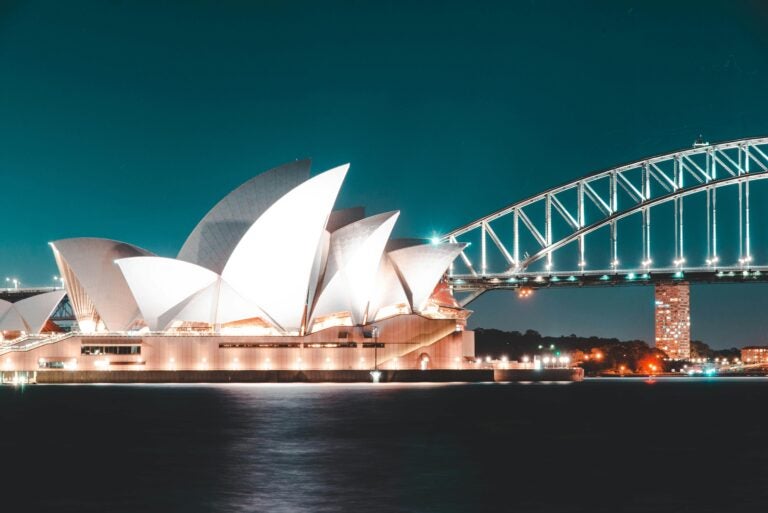
Great Barrier Reef
Visiting the Great Barrier Reef is a bucket-list experience for many travelers, and with good reason — it’s the world’s largest coral reef system, teeming with marine life and breathtaking underwater views.
First, there’s no single “entry ticket” for the reef. Instead, you’ll book tours or activities through operators that offer everything from snorkeling trips to luxury cruises.
- Snorkeling tours: From $63–$369 AUD (~$41–$240 USD), depending on the tour and location
- Great adventures cruises: Day tours start at $288 AUD (~$188 USD) for adults and $156 AUD (~$102 USD) for children
- Down under cruise and dive: Options include day tours at $245 AUD (~$160 USD) for adults or multi-day tours ranging from $295–$500 AUD (~$193–$334 USD)
For trusted information and conservation efforts, check resources like the Great Barrier Reef Marine Park Authority or the Great Barrier Reef Foundation.
These organizations also provide tips on how to visit sustainably, ensuring this natural treasure remains vibrant for generations to come.
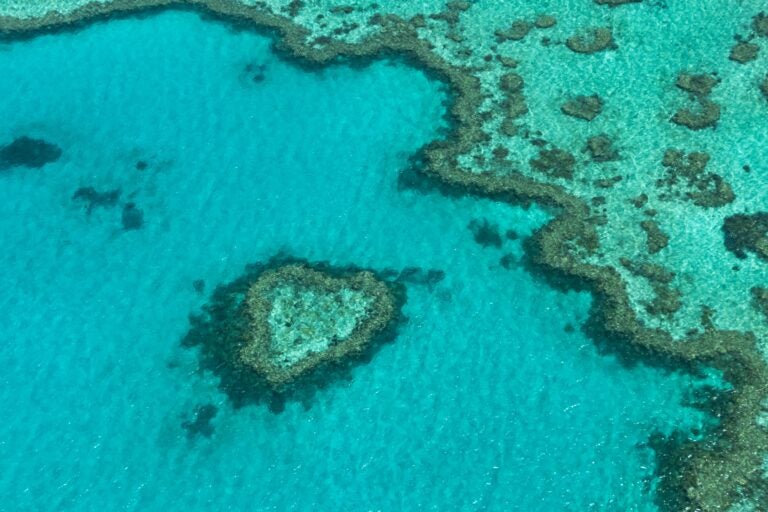
Bondi Beach
With no entry fee, Bondi Beach is a perfect budget-friendly destination for beach lovers. Just don’t forget to buy sunscreen!
Taronga Zoo
With over 4,000 animals and award-winning conservation programs, it’s a must-see for visitors of all ages.
Individual Day Tickets
| Ticket type | Gate price (AUD) | Online price (AUD) |
|---|---|---|
| Adult | $53.00 | $47.70 |
| Concession | $41.00 | $36.90 |
| Child (4-15 years) | $31.00 | $27.90 |
| Infant (under 4 years) | FREE | FREE |
Family Day Tickets
| Ticket type | Gate price (AUD) | Online price (AUD) |
|---|---|---|
| 2 Adults and 2 Children | $151.20 | $134.40 |
| 2 Adults and 1 Child | $123.30 | $109.60 |
| 1 Adult and 2 Children | $103.50 | $92.00 |
What’s included in your ticket?
- Access to the zoo from 9:30 AM to 4:30 PM
- Keeper talks and wildlife presentations to get up close with your favorite animals
- A full day of exploring the zoo’s diverse habitats, including the African Savannah and Australian Bush
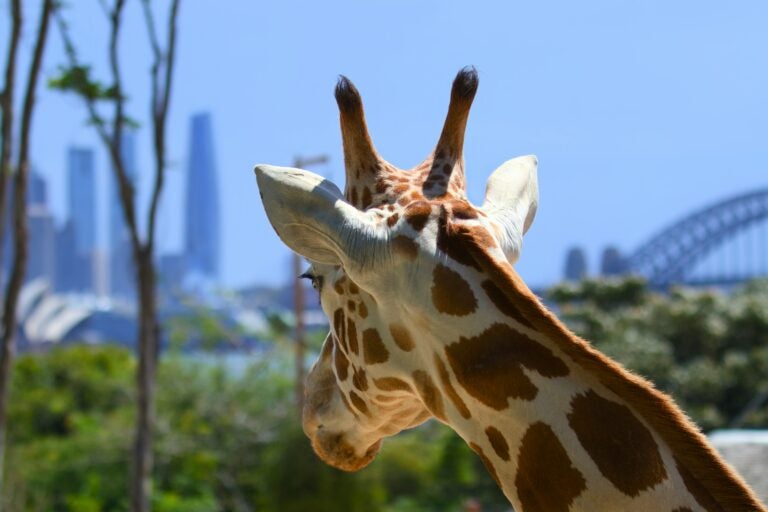
Ayers Rock
Ayers Rock, also known as Uluru, is a must-visit landmark in Australia—a striking red monolith steeped in cultural and spiritual significance for the Anangu people.
This UNESCO World Heritage site is a profound experience of Australia’s ancient landscape and Indigenous heritage.
Access to Uluru-Kata Tjuta National Park requires a park pass, which covers entry to both Uluru and the surrounding Kata Tjuta formations. Tickets are easy to book through the official Parks Australia website:
- 3-Day Pass for adults (18+) costs $38 AUD (~$25 USD) and is free for children (17 and under)
- Annual pass for an Individual adult costs $50 AUD (~$33 USD)
- NT Resident Vehicle Pass costs $109 AUD (~$72 USD) (covers the driver and all passengers in a Northern Territory-registered vehicle)
Your pass includes access to the park’s walking trails, cultural presentations, and the chance to witness stunning sunrises and sunsets over the rock.
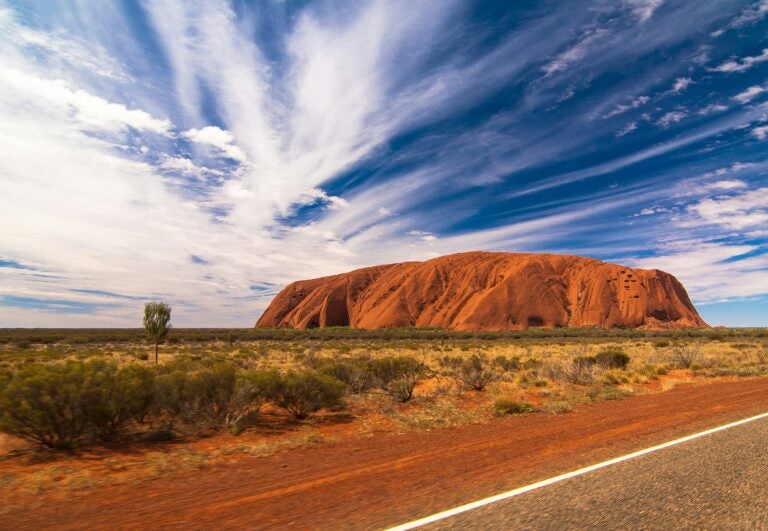
Twelve Apostles
Standing tall along the Great Ocean Road, the Twelve Apostles are a sight to behold. These iconic limestone stacks are a bucket-list experience for anyone visiting Victoria.
The best part? Access to the viewing area is absolutely free — meaning you can soak in those jaw-dropping coastal views without spending a dime.
Want to take your visit to the next level? Book a helicopter tour for a bird’s-eye view of these incredible formations.
Prices for these tours start at $175 AUD (~$115 USD) per person, offering a breathtaking perspective you won’t get from the ground.
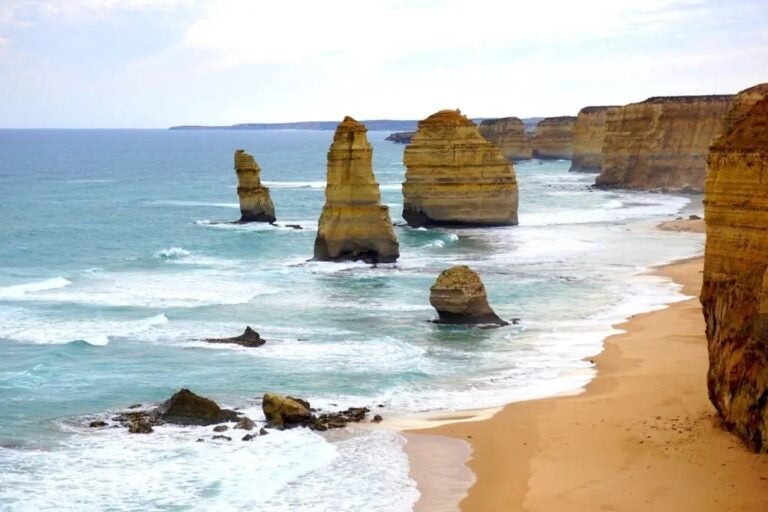
Top tips to save money on your trip to Australia
Australia’s got it all — stunning beaches, jaw-dropping outback adventures, and wildlife. But the price tag? It doesn’t have to sting. Let’s talk about some real ways to save while living your Aussie dream.
- Fly smart: Book flights during the shoulder season (March-May or September-November) to dodge peak prices and crowds. Use fare alerts from apps like Skyscanner or Hopper to snag deals before they disappear.
- Public transport wins: Cities like Sydney and Melbourne have daily caps on transport fares — affordable and efficient. Plus, Sydney’s ferries? They double as a budget-friendly cruise with million-dollar views.
- Skip fancy dining: Australia’s bakeries and markets are where the real magic happens. Grab a meat pie for a few dollars or shop for fresh local produce to cook your own meals.
- Budget stays that feel luxe: Hostels, Airbnb rentals, or even campervans give you comfy options without draining your funds. Traveling longer? Try house-sitting for free stays and a chance to live like a local.
- Don’t miss free stuff: Walk the Bondi to Coogee coastal trail, explore Melbourne’s street art, or visit free galleries and museums. Australia has heaps of adventures that cost zilch.
- Stay connected without stress: Ditch charges for roaming in Australia. Get a Holafly eSIM with unlimited data starting at $6.90 USD
- Bundle and save: Many attractions, like national parks, offer discounted multi-entry passes. If you’re planning to visit multiple spots, it’s a no-brainer for your budget.
Cost of staying connected in Australia
Reliable internet is a must when exploring Australia, whether for navigating remote roads, staying in touch with family, or sharing your travel highlights. Public WiFi? It’s often slow, patchy, or non-existent when you need it most.
You could go the traditional route with a local SIM card in Australia from providers like Telstra, Optus, Vodafone, Felix Mobile, or Belong. But be prepared for queues, paperwork, and a wait:
- You’ll likely need to visit official stores, air kiosks, or airport counters
- Carry your passport and other documents for registration
- Activation can take hours, and plans often come with data limits
Not exactly what you want to spend your vacation doing, right?
Or, you can skip the hassle entirely with an eSIM! With Holafly’s eSIM for Australia, you get unlimited data with flexible plans tailored to your trip.
Prices start at just $6.90 USD for 1 day and go as low as $1.55 USD per day for 90 days.
Setting it up is easy. Simply purchase the eSIM through the Holafly app (available for both Android and iOS) or the website. You’ll receive a QR code — scan it, activate the eSIM, and you’re ready to go!
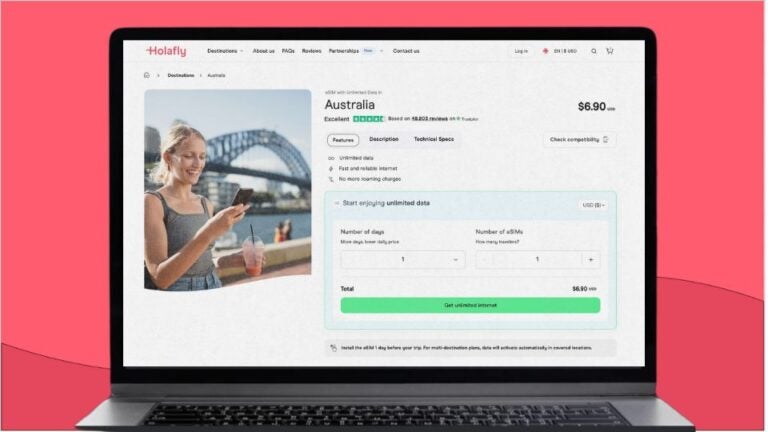
So how much does an Holafly eSIM for Australia cost?
| Number of days | Price (USD) | Price per day |
|---|---|---|
| 1 | $6.90 | $6.90 |
| 3 | $12.90 | $4.30 |
| 5 | $20.90 | $4.18 |
| 10 | $36.90 | $3.69 |
| 15 | $50.90 | $3.39 |
| 20 | $61.90 | $3.09 |
| 30 | $74.90 | $2.50 |
| 60 | $106.90 | $1.78 |
| 90 | $139.90 | $1.55 |





 Language
Language 


















 No results found
No results found




